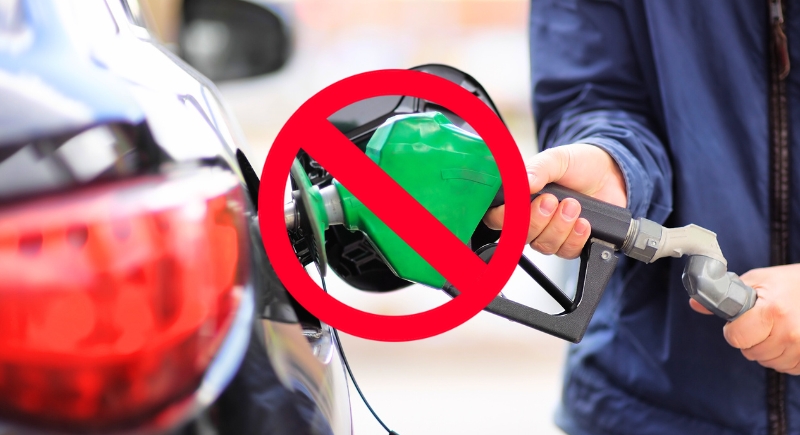Picture a world where the roads are dominated by the gentle hum of electric vehicles rather than the roar of gasoline engines. The transition to this quieter, cleaner future is accelerating across the United States as several states make bold moves to end the sale of new gas-powered vehicles. Here’s a look at the states at the forefront of this transition:
California


Credit: pexels
California remains a leader in environmental initiatives, implementing the Advanced Clean Cars II rule in 2023, which aims to phase out gas vehicles by 2035. The state has been proactive in setting up electric vehicle charging infrastructure to support this transition, ensuring a significant shift towards zero-emission vehicles.
Delaware


Credit: Wikimedia Commons
Following California’s footsteps, Delaware aims to have 80% of new car sales be electric or hybrid by 2032, a few years ahead of the 2035 goal set by other states. This ambitious target requires a robust charging network and a state-wide increase in the availability of electric vehicles.
Washington


Credit: pexels
Washington state is moving quickly, with a law established in 2022 to ban new gas vehicles by 2030, setting an earlier deadline compared to most states. The “Clean Cars 2030” initiative is a crucial component of Washington’s comprehensive climate strategy, which includes improvements to public transit and the electric grid.
Massachusetts


Credit: flickr
Massachusetts is actively pursuing a future free from gas emissions, backed by a history of innovation and education. The state has already implemented electric vehicle incentives and charging infrastructure projects, with set milestones for 2025 and 2030 to track progress.
New York


Credit: pexels
Governor Kathy Hochul’s legislation puts New York on track for a complete shift to zero-emission vehicles. The law mandates that 35% of new car sales within the next two years be electric, signaling a significant transformation in the automotive market across the state.
Oregon


Credit: pexels
In December 2022, Oregon committed to California’s 2035 ban, with over 50,000 electric vehicles already registered. The focus remains on reducing emissions from transportation, identified as the state’s primary pollution source.
New Jersey


Credit: flickr
Adopting California’s guidelines, New Jersey has set its own benchmarks, targeting 43% of new vehicle registrations to be electric by 2027. With over 120,000 electric vehicles already on the road, the state is building a solid foundation for future growth.
Maryland


Credit: Wikimedia Commons
Maryland’s push toward electric vehicles is driven by public health concerns. Governor Wes Moore supports the phaseout of gas cars by 2035, a move expected to significantly reduce healthcare costs associated with pollution-related diseases.
Rhode Island


Credit: Wikimedia Commons
Despite its small size, Rhode Island is taking substantial steps to curb transportation emissions, with a plan to ban gas-powered cars by 2035. The state is investing in charging infrastructure and renewable energy to support this transition.
Vermont


Credit: Wikimedia Commons
Vermont is aligning its automotive future with its environmental values, targeting 2035 for all new car sales to be zero-emission. By 2026, the state anticipates 35% of new cars will meet this criterion, advancing Vermont’s commitment to sustainability.
Colorado


Credit: Wikimedia Commons
Colorado’s “Clean Cars Standard,” passed in October 2023, sets an ambitious goal for 82% of new car sales to be electric by 2032. While hybrids are still part of the plan, Colorado is encouraging a shift to electric vehicles with tax incentives to ease the transition.
New Mexico


Credit: Wikimedia Commons
New Mexico has adopted both the Advanced Clean Cars II rule and the Advanced Clean Trucks (ACT) rule. While not enforcing a ban on gas cars, the state focuses on reducing pollution by steering consumers and manufacturers towards less polluting alternatives.
District of Columbia


Credit: flickr
The District of Columbia has committed to ending the sale of new gas vehicles by 2035. This initiative is part of a broader effort to achieve climate goals and enhance air quality, with plans to expand the city’s network of charging stations.
Original Story at www.aol.com
